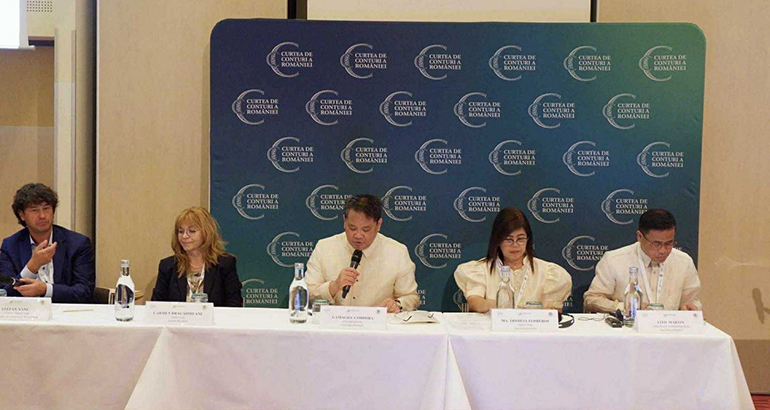
Upgrade to High-Speed Internet for only ₱1499/month!
Enjoy up to 100 Mbps fiber broadband, perfect for browsing, streaming, and gaming.
Visit Suniway.ph to learn
Today we will take our leadership lessons from dolphins and tigers.
An article on LiveScience featured Delle, a solitary bottlenose dolphin residing in Denmark’s Svendborgsund channel. Typically highly social, Delle was separated from his pod and began exhibiting unusual behavior. Over two months in 2023, researchers recorded him producing 10,833 vocalizations—whistles, burst pulses and percussions.
Cetacean biologist Olga Filatova explained, “These sounds are traditionally considered communicative, meaning there should be at least two dolphins ‘talking’. But Delle was completely alone.” One hypothesis suggests Delle’s vocalizations reflect loneliness, possibly an attempt to self-soothe or find a connection.
Now, let us turn to another article featured in the e-newsletter Morning Brew. It talks about the story of two rescued Siberian tigers named Boris and Svetlaya. They were released in the Russian wilderness over 100 miles apart as part of a rehabilitation and conservation effort.
“However, you can’t stop true love!” the article said.
Boris began seeking out his lost love. He traveled the entire distance, approximately the length of Taiwan, to reunite with Svetlaya, where she was located. Six months later, the couple has a litter of tiger cubs.
The stories of Delle the dolphin and Boris the tiger highlight leadership lessons about healthy relationships:
1. The value of connection
Just as Delle’s vocalizations underscore the deep need for connection, leaders and their teams thrive in environments of meaningful communication. Humans, like dolphins, are social creatures. Leaders should prioritize creating opportunities for collaboration and interaction to strengthen team bonds and foster a sense of unity and shared purpose.
Many companies (especially in the West) will require their people to return to the office. Not all will need a whole week of office attendance, but a hybrid arrangement—which involves a combination of remote work and in-office work—is most acceptable. This arrangement allows for the benefits of in-person collaboration while also providing the flexibility and comfort of remote work.
People thrive on connection, and social interactions often flourish in spaces like canteens and pantries where bonds and jokes about bosses are made! (Just kidding.) These connections can’t be replicated through lifeless screens. Many would prefer working in the office, but the stress, time and commuting costs create tension that affects both money and productivity.
2. The power of persistence
Boris’s journey of over 100 miles to reunite with Svetlaya underscores the importance of determination in fostering and maintaining relationships. Building strong connections often requires effort and intentionality, instilling a sense of commitment and dedication in leaders and their teams.
Leaders must invest time and energy in building trust and rapport with their teams, even when faced with challenges or distance (physical or emotional). Not so that their people would fall in love and bear children—but you know what I mean. Persistence in understanding and addressing team members’ needs creates lasting bonds.
3. Communication is life
Delle’s vocalizations highlight the universal importance of communication. Leaders must consistently share their vision, values, and feedback, as communication forms the backbone of any successful business.
Delle’s isolation and potential loneliness also underscore the emotional impact of disconnection. Building inclusivity and community is equally vital. By involving team members in decision-making, leaders create a caring culture where everyone feels valued and supported.
Boris’s journey to find Svetlaya illustrates the extraordinary efforts we make for those we value. Great leaders inspire loyalty by demonstrating care, respect and a strong commitment to their teams. Smart leaders consistently recognize their team’s efforts, celebrate milestones, and advocate for their success. This fosters mutual loyalty and often leads to remarkable results.
Like Delle in isolation and Boris navigating challenging terrain, leaders must also adapt to unique and evolving circumstances. Flexibility and responsiveness are essential for managing relationships and ensuring team success in a constantly changing environment.
Over the many years of my leadership training, I have noticed a rising trend of younger generations lacking communication and social skills. Years of being glued to screens and an over-reliance on digital communication—through texting, emails, group chats— have improved efficiency but come at a cost. These tools often hinder the development of face-to-face communication and emotional intelligence.
Additionally, the rise of remote work, virtual classrooms, and social media has significantly reduced opportunities for in-person interactions. This lack of real-world practice often leaves young professionals struggling with awkwardness or the inability to read non-verbal cues effectively. Growing up in environments that prioritize harmony and avoid difficult conversations, many also lack experience navigating disagreements constructively, often choosing avoidance over resolution.
The solution lies in leaders and managers fostering meaningful engagement and promoting effective communication within their teams.
If not, we might have to turn to dolphins and tigers to remind us how vital connection and persistence are in building strong relationships.
Catch Francis Kong on his YouTube and podcast channel Kongversations with Francis. And don’t miss his inspiring podcast “Inspiring Excellence” now streaming on Spotify, Apple, Google, and all major podcast platforms.

 4 days ago
5
4 days ago
5



